The high tragedy of "Princess Tarakanova"
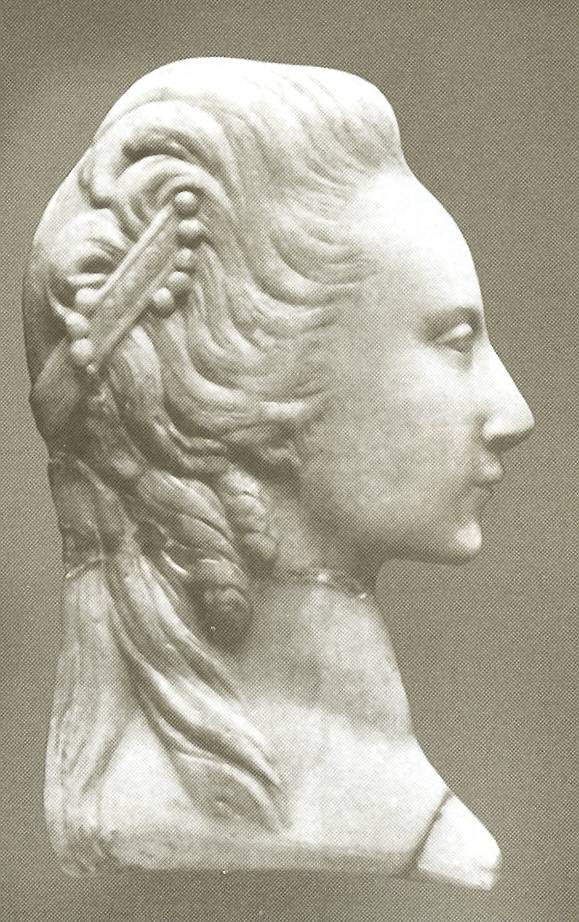
The situation was different with the impostors, which was connected with the subordinate position of women in Russia and in the Russian Empire. Even False Mnishek did not appear in Russia during the Time of Troubles. At the beginning of the 19th century, the well-known cavalry-girl Nadezhda Durova acted as a vaudeville impostor, but she also claimed only the title of cornet, no more. And only in the twentieth century, impostors suddenly rained down, as if from a leaky bucket: as such, numerous pretenders to the “title” of the executed daughters of Nicholas II were made. Some took the name of the great princesses Olga, Tatyana, Mary. Of these, the most successful was a certain Margia Boodts, who, posing as Olga, happily lived in a villa near Lake Como, receiving a pension from Prince Nicholas of Oldenburg and Crown Prince Wilhelm - until her death in 1970. But most of all, for some reason, Anastasia "fell in love" with these adventurers. At least 30 False Anastasias appeared in different countries and at different times. The most famous of them was Anna Anderson, the last - Natalia Belikhodze, who died in 2000 year. It’s impossible to take these impostors seriously, the stories they invented have a very strong aftertaste of Disney cartoons, operettas or opera buff.
But there was among the Russian impostors a tragic figure of a truly "Shakespearean" scale. This is a mysterious woman posing as the daughter of Empress Elizabeth Petrovna and her secret husband, Alexei Razumovsky.
Mysterious stranger
She called herself Madame Frank, Shawl, Treimul, Ali Emete, Betty from Oberstein, Alina (Eleanor) - Princess of Azov, Countess Pinneberg, Princess Volodymyr. And only this, by all known name, she never called herself. She received it from the French diplomat Jean Henri Custer, who named her so in his book “The Life of Catherine II, the Empress of Russia,” published in 1797, 22 years after the death of the adventurer. It is believed that this family name originates from the nephews of Elizabeth’s secret husband, Aleksey Razumovsky. In the original, their surname sounded like Daragan, and they were called "Daraganovs" in the camera-furrier magazine.
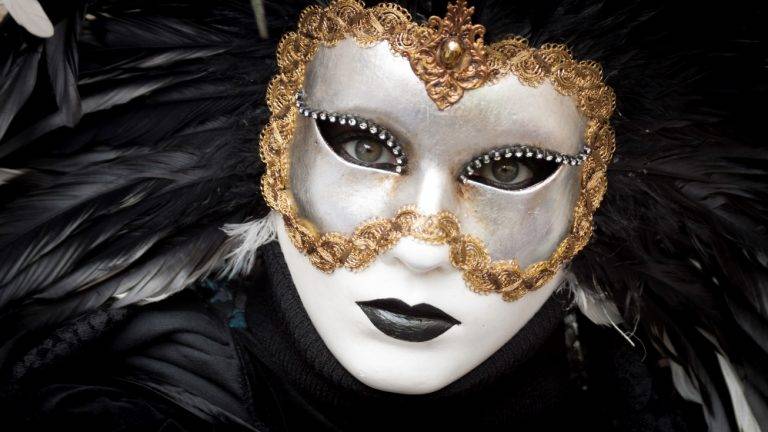
You probably already guessed that it would be about the famous “Princess Tarakanova”. More precisely, about the two “princesses,” since the alleged “Princess of Augustus” also claimed the role of “daughter of Elizabeth,” a mysterious woman whom Catherine II kept almost imprisoned in a solitary cell of the Moscow Ivanovo Monastery.
The greatest interest, of course, is the first of them. In the life story of this fatal beauty, there seems to be everything: an appearance from nowhere and a rapid rise, rivalry with the empress of a vast country, love, betrayal and tragic death. “Princess Augusta” against her background looks colorless, dull and “fresh”.
Let's start in order.
The appearance of the heroine
It is believed that the great adventurer was born between 1745 and 1753 years. The Marquis Tommaso d'Antici, whom she met in Rome, considered her German. John Dick, an English ambassador to Livorno, claimed that she was the daughter of a Nuremberg baker. They also said that she was the daughter of an innkeeper from Prague. The Soviet historian V.A. Dyakov, having studied her correspondence with the Count of Limburg, came to the conclusion that, by birth, she was French. And outwardly False Elizabeth was like an Italian. Alexey Orlov left such a description of her appearance:
Some point to strabismus, claiming that it "did not spoil her face."
False Elizabeth knew several European languages, assured that she also spoke Arabic and Persian (there were no experts who could check,). She was well versed in art, in particular in architecture, drew well, played the harp.
Prince A.M. Golitsyn, who led the investigation into the impostor case in St. Petersburg, spoke of her like this:
For the first time on the pages of historical documents she appeared in 1770 under the name Fraulein Frank: first she lived in Kiel, then in Berlin and Ghent. In the last city, her adventures began. Here she met with a certain van Tours - the son of a wealthy merchant, who became the first victim of the female charms of an adventurer. Having spent all his savings on Fraulein Frank, he left his wife and went with her to London. Here his passion took the name of Madame de Tremuil and took a large loan from one of the merchants of this city. When the time came to pay the bills, the unfortunate lover, desperate to satisfy the appetites of the adventurer, fled to Paris. His lover soon appeared there: under a new name (Princess Volodymyr) and with a new admirer - Baron Schenk. Under the strict guidance of Mrs. Volodimirskaya, both lovers soon found themselves in a debt prison, she herself went to Frankfurt, where she met a really serious person - Philippe Ferdinand de Limburg. He was born in 1734 in the family of Count Christian Otton of Limburg-Stirum and his wife Carolina Juliana. The small county of Wilhelmsdorf in Bavaria inherited from his mother. In 1766, Philip Ferdinand received the title of “foreign prince” from the French authorities. In addition, he claimed Holstein, whose duke was the Russian Tsarevich Pavel. Thus, although the new “patron” of the False Elizabeth could not be called either the sovereign ruler of a large state, or a very rich man, at the described time he had his own Court in the image of Versailles, and had the right to award his own orders - St. Philip and the Four Emperors. Having paid the debts of the bewitching charmer, Philip Ferdinand invited her to his castle, and when she announced her pregnancy as an honest man, she offered her “hand and heart”. To become his wife would be the ultimate desire for any unknown adventurer. But our heroine "any" has never been. And in December of 1773, rumors suddenly appeared that under the name of “Princess of Vladimir” - the bride of Philip de Limburg, was hiding the daughter of Elizabeth Petrovna and her favorite, Count Alexei Razumovsky, who entered into a secret (but legal) marriage in 1744. A place is known. their secret wedding is the Church of the Resurrection in Barash.
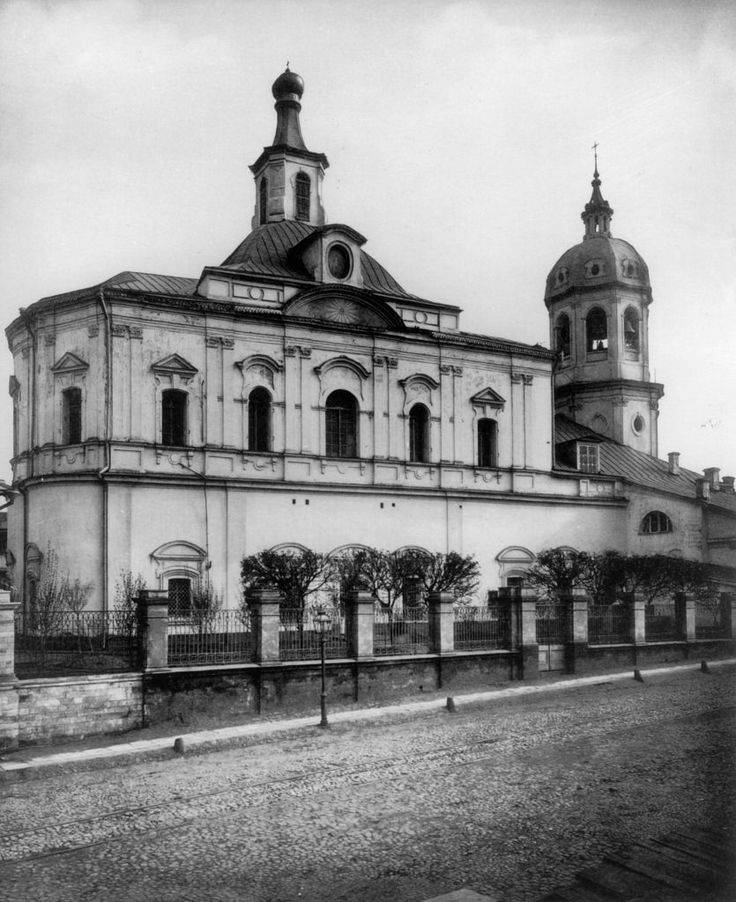
They said that before the cross of this church was even decorated with a crown. They also showed the house in which, allegedly, the wedding took place - then it was occupied by the 4-th Moscow gymnasium.
However, some call another place of the Empress’s wedding - the Temple of the Sign near Moscow in the village of Perovo.
One way or another, the majority of historians have no doubts about the fact of the wedding of Elizabeth and Razumovsky, it took place with witnesses, the count was even given supporting documents.
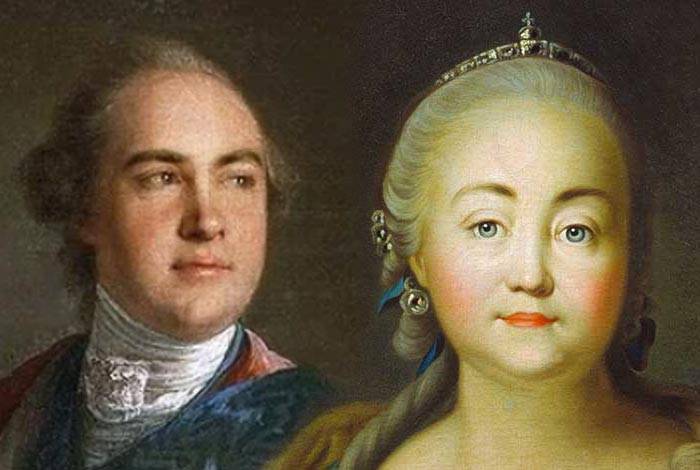
Immediately after the wedding, Razumovsky received the title of Field Marshal and the so-called Anichkov Palace (from the name of the Anichkov Bridge located nearby) as a gift.
Contender
Thus, “a legitimate pretender” to the Russian throne - Grand Duchess Elizabeth - suddenly appeared abroad. Now this seems like a joke: who is this wandering adventurer, how and in "what field" can she compete with the empress of a great country? However, both contemporaries and Catherine II took this news quite seriously. The fact is that Catherine herself was not the rightful monarch of Russia: she usurped the throne, to which she did not have the slightest rights. It is this vulnerability from the point of view of dynastic law that caused alarm. Of course, many understood that the pretender that appeared out of nowhere was an impostor. But after all, far from everyone believed in the royal origin of the “named Demetrius” - both in Poland and in Moscow. Which did not stop him from seizing the Russian throne. Therefore, no one was going to underestimate False Elizabeth.
The impostor at different times put forward different versions of her biography. Most often, she looked something like this: in infancy, she was “the daughter of Elizabeth Petrovna,” who was taken from Russia, first to Lyon, and then to Holstein (Kiel). In 1761, she returned to Petersburg, but very soon the new emperor - Peter III, ordered to send her either to Siberia or to Persia (most often she chose this option for some reason). Only then did she find out about her origin, and fearing for her life, she moved to Europe (everything is logical here - after Catherine’s conspiracy and the murder of her legal emperor’s accomplices, anyone will be scared).
But then Philip de Limburg already doubted: the bride is the heir to the Russian throne, which, of course, is very good. But it’s dangerous. In addition, the "well-wishers" told him some details about the early adventures of "Princess Volodymyr." He also received information that Prince Golitsyn, whom the bride called the guardian, did not know about such a ward. Therefore, the groom demanded documents from the False Elizabeth confirming her origin. However, at this time the adventurer had other plans for the future. And so she easily parted with the Count of the boring Wilhelmsdorf. Having changed her name again, and now becoming Betty from Oberstein, she began to spread rumors that Emelyan Pugachev, who had risen up in Russia, was her father’s brother, “Prince Razumovsky,” who acted in her interests. A year later, she corrected this version by telling the British ambassador in Naples that Pugachev was just a Don Cossack who acted in her favor out of gratitude, since Elizaveta Petrovna, in due time, had helped him get a “brilliant European education”.
The reason for such a sharp change in priorities was the acquaintance with influential Polish emigrants, who apparently remembered the history of False Dmitry well, and therefore decided to use the adventurer for their own purposes.
Polish question
In 1763, the Polish king Augustus of Saxony died. A year later, with the active assistance of his former mistress, who has now become Empress of Russia - Catherine II, Stanislav Augustus Poniatowski was elected king of Poland from the family of magnates of the Czartoryski. In 1768, after the so-called Repninsky Diet (by the name of the representative of Catherine II), who equalized the rights of Catholics and Orthodox, and the conclusion of the Warsaw Pact on eternal friendship with Russia, part of the discontented nobility united in the Barsky Confederation. The Confederates immediately began an armed struggle against all whom they could suspect of sympathy for Russia.
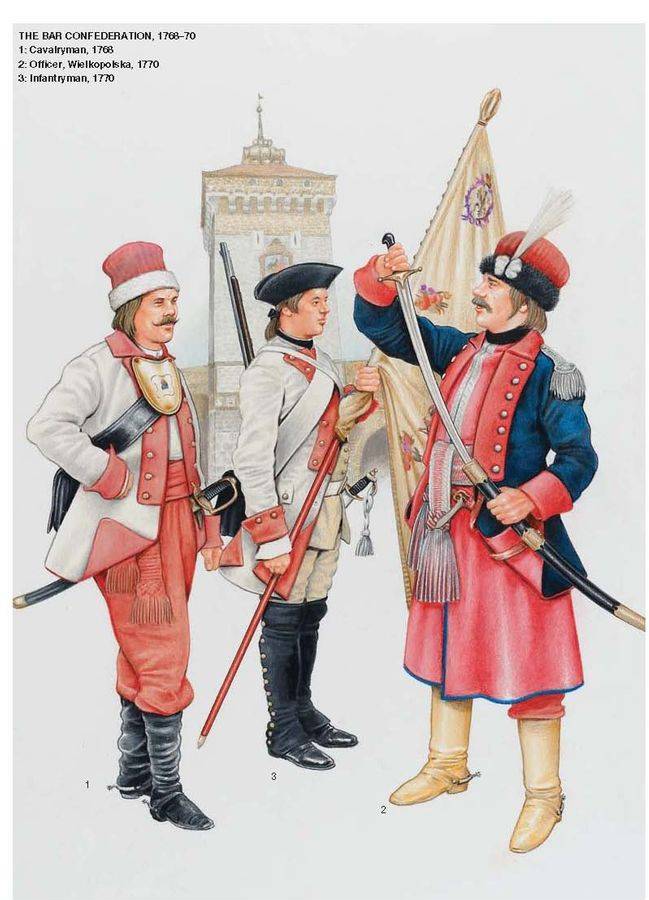
Casimir Pulawski, who later flees to Turkey and eventually ends up in the United States, becoming the “father of the American cavalry,” issued an interesting appeal then. Among other things, it stated that the Russians were “animals, persistent, but obedient, who ... obey only the fear of the whip and punishment.” And also, that the Russians "have always been slaves", they can even be defeated by the Polish claps, and the gentry are ashamed to fight them.
In 1996, forensic anthropologist Charles Merbs from Arizona State University in 1996 examined K.Pulavsky’s remains and suddenly found out that his skeleton with traces of bullet wounds and changes in the pelvis characteristic of a cavalryman was ... female. After 20 years, DNA examination confirmed that this skeleton belongs to a representative of the Pulawski family. Merbs suggested that Casimir Pulawski was a hermaphrodite, or, as they say now, an intersexual. Perhaps he himself was not aware of his "dual nature." There was probably a certain femininity of the figure and facial features. Perhaps with the potency of the problem, but it is unlikely that he spread about them.
But back to the 18th century. The Confederates were supported by the recent allies of Elizabeth in the Seven Years' War - the Austrians and the French. And deposed Stanislav Ponyatovsky turned to Russia for military help. The Confederates also had high hopes for the Ottoman Empire. However, the Sultan did not want a war with Russia, and therefore not only didn’t send his troops, but he also forbade his vassals, the Crimean Khan and Moldavia, to intervene in Polish affairs.
The young foreman A.V.Suvorov took part in this war, who received the rank of Major General for the defeat of the Confederates near Orekhov in 1769. And in 1771, he defeated the French general Dumourier, sent by Paris to help the Confederates.
As a result, as expected, the Confederates were defeated, almost 10 of thousands of Poles were captured, most of them (about 7 of thousands) were then in Kazan, where they were by no means destitute. To accommodate only Anthony Pulawski - the brother of Casimir who managed to escape, they allocated a whole palace. After the start of the Pugachev uprising, many Polish aristocrats joined the Russian army, and their subordinates in crowds went over to the side of the "rebels." The most curious thing is that, among those who switched to Pugachev, was also Anthony Pulavsky! The explanation is simple: the Confederates dreamed of a revenge and wanted to establish ties with the leader of the rebels. But Pugachev was not a person who could allow himself to be used as a puppet, and therefore a disappointed Pulavsky soon left the camp of Russian rebels.
And the chief leaders of the Bara Confederation have settled in Germany and France since August 1772. In emigration, they founded the so-called General Confederation. Very soon, our heroine attracted their attention, which they dragged into their game. Their first emissary was Mikhail Domansky, who, however, very soon turned from a catcher into prey, because he could not resist the charms of Casanova in a skirt and seriously fell in love with her.
In May 1774, False Elizabeth arrived in Venice under the name of Countess Pinnenberg. In addition to Domansky, she was accompanied by Baron Knorr (the marshal of the Court!), The Englishman Montague and some others, whose names history has not preserved. Here, in the house of the French consul (a good scale for an adventurer!), She met Prince Karol Stanislav Radziwill - one of the richest people in Europe, among whose titles were: the prince of the Holy Roman Empire, the elder of Lviv, governor of Vilna, the swordsman of Lithuania, the ordinate of Nesvizh and Olytsky, Marshal of the General Confederation. Or just - Panet Kohanku. Earlier, in correspondence, he called the impostor "called Providence for the salvation of Poland."
Pane Kohanku
This strange, but certainly an outstanding person was born on February 27 1734 and he was not a Pole, but a Litvin, the capital of his possessions - the famous Nesvizh.
Karol’s father was IX Nesvizh ordinate Mikhail Kazimir Radziwill Rybonka, his mother was Francis Ursula Radziwill, the last of the old Vishnevetsky family, who is called the first Belarusian writer (but in Ukraine they emphasize that she is Ukrainian).
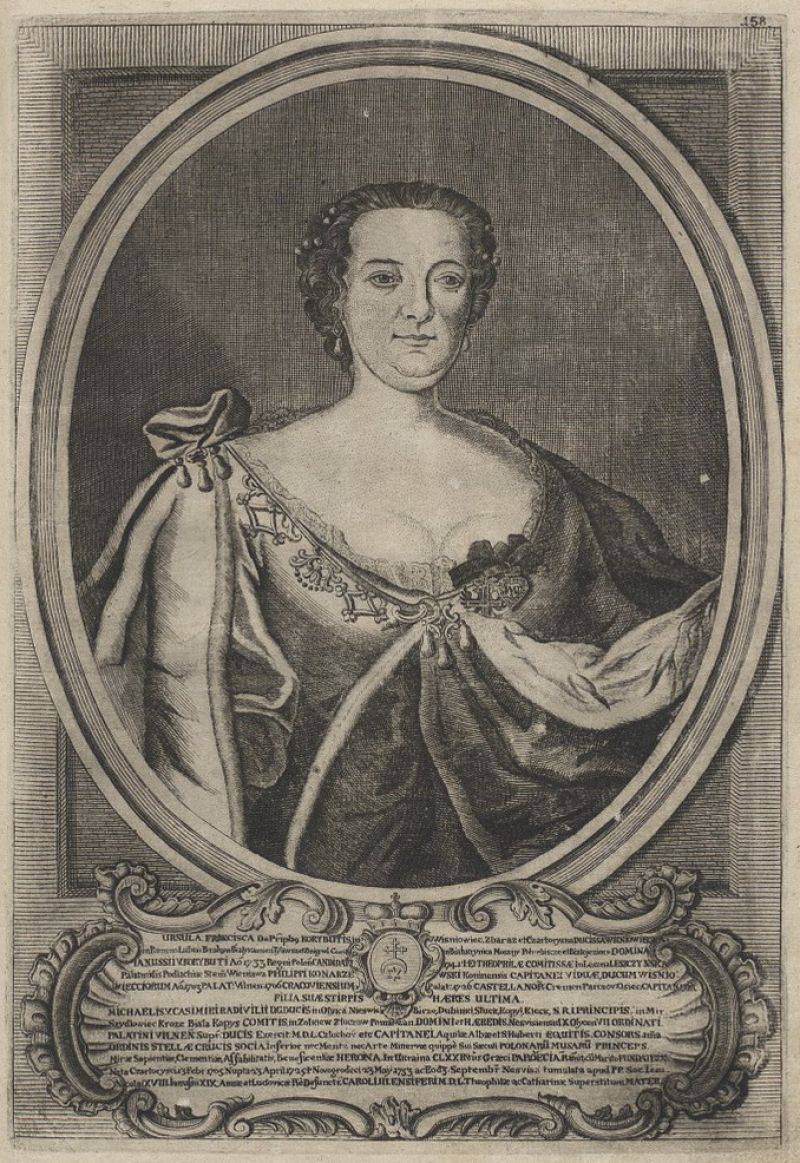
Karol Stanislav had a twin brother Janusz, who died at the age of 16 years. To teach the boy to read and write, I had to resort to tricks: he was offered to shoot a pistol in letters written on wooden tablets, thus making up words and sentences.
The character of this man is well conveyed by the “holiday of winter in the middle of summer” arranged by him, when the road from the castle to the church was covered with salt and slept on it. As a result, the surrounding peasants for a long time stocked up with this expensive product in those days. Another interesting story related to this hero is his joke with the then little-known dynamo discharged from France: he showed it to guests during a thunderstorm, claiming to be the “god of thunder”. The result was very unexpected: one of his guests, whose house in Slutsk later burned down due to lightning, demanded from Radziwill, as the “lord of the storm,” compensation, which he paid without further ado.
The stories that Karol Radziwill sometimes “gave out” at the dinner table are worthy of the pen of Erich Raspe. Of particular note are two of them. In the first, he spoke about the capture of a trait in Nalibokskaya Pushcha, which he soaked for three days in holy water. In the second - about how he climbed into hell through the volcano Etna and saw there are many Jesuits sitting in clogged bottles: fearing that they will convert all the devils to Catholicism, Lucifer himself put them there.
And he got his nickname due to the fact that he addressed all his acquaintances: “Pan Kokhanka” (“My Beloved”).
The following description of his appearance has been preserved:
The English envoy to the St. Petersburg court, D. Garris, left a rather unpleasant comment about him:
The prince’s behavior, indeed, was distinguished by charming spontaneity, which in any other case would be regarded as tyranny, but for Pan Kohanku contemporaries made an exception, speaking only about the "eccentricities" of this tycoon. Having nominated himself a candidate for the post of ambassador to the Sejm, he set forth his “program” in the Nesvizh market sitting in a suit of Bacchus on a barrel of wine, while treating everyone. In the 1762 in the election of the hetman of the Grand Duchy of Lithuania, he decided not to spend money on wine: his people "regaled" opponents with whips and even sabers. He also tried to act in the elections of the king of Poland, bringing with him an army of several thousand people, but was defeated, fled to Moldova, then to Dresden. There, he quickly missed the abandoned estates and asked for forgiveness: to the new king Stanislav Ponyatovsky, and to a much more serious and authoritative man - the Russian Empress Catherine II:
“Imbued with a feeling of the most lively gratitude to the empress for the proposed protection, obedient to her generous will for the good of the republic and all good patriots,” he promised, “that he will always adhere to the Russian party; that the orders that the Russian court would like to give him will always be accepted with respect and humility, and that he will execute them without the slightest resistance, direct or indirect. "
By the way, he returned to Vilna under the protection of a Russian detachment led by Colonel Kar: supporters of the Czartoryski Pane Kohanka in their homeland did not really wait. When the Bara Confederation arose, Radziwill behaved suspiciously: he received rebel emissaries in his castle, increased the number of "militia" to 4 000 people, the number of guns - to 32, and stocked up military equipment. Things got to the point that he demanded that Major General Izmailov not attack the Confederates near Nesvizh - because he is such a fiery patriot that “he cannot be an indifferent witness to the shedding of blood of his fellow citizens and, if the battle happens near his castle, will withdraw his army ". Quite surprised by such insolence, Izmailov besieged Nesvizh, forcing Radziwill to write to the Russian ambassador Repnin repentant letters apologizing for "involuntary mistakes." He had to hand over to the Russian authorities Slutsk and Nesvizh, dissolve the "police", surrender everything weapon and equipment. In June 1769, he begged to release him into his Austrian possessions, but ended up in the émigré "government - the very General Confederation.
“Babette goes to war”
Faced with the adventurer, Radziwill did not go around and around, immediately indicating the cost of the "services" of the Confederates: "Elizabeth II" should return the Polish-Lithuanian Commonwealth to Belarus and facilitate the return of the Polish territories captured by Prussia and Austria. They decided that she would head the corps of Polish and French “volunteers” who would go to the Russo-Turkish war, where the “heiress to the throne” would have the opportunity to appeal to the Russian army to switch to her side. And, in June 1774, the city of False Elizabeth really went to Constantinople, but because of the weather and various diplomatic delays she sailed only to Ragusa (Dubrovnik), where she settled in the house of the French consul.

Here she was overtaken by the news of the conclusion between Russia and Turkey of the Kyuchuk-Kainardzhiysk peace. For Prince Radziwill, the impostor immediately ceased to be interesting. In desperation, the impostor turned to a terrible person, about whom E. Tarle said:
And this man was Count Alexei Orlov, who was in secret disgrace, who commanded the Russian squadron of the Mediterranean Sea.
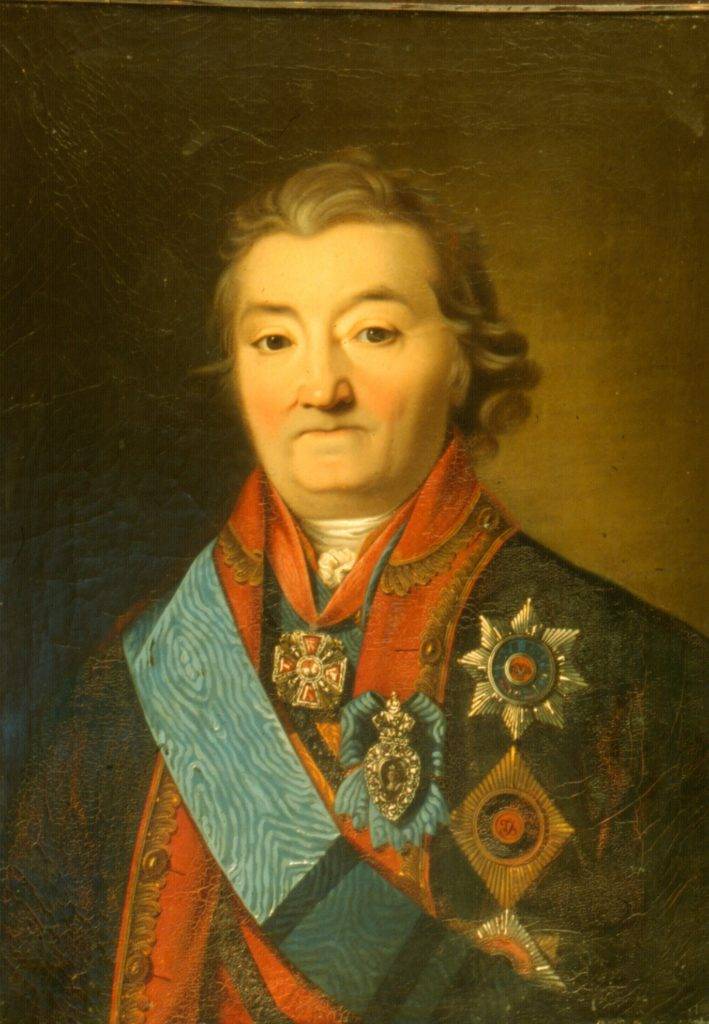
"Dangerous ties"
Confident in its irresistibility, the impostor decided to take possession of him, and at the same time - Russian fleet. In one of the letters transmitted to Orlov through Montague, she stated that she had copies from the original wills of Peter I, Catherine I and Elizabeth. And that she is going to publish these documents confirming her rights in European newspapers. She wrote about the brilliant successes of the popular uprising launched by her brother, "now called Pugachev." The fact that she is assisted in everything by the Turkish Sultan and many monarchs of Europe. That she has many adherents in Russia. And she promised Orlov her protection, the greatest honors and "dearest gratitude."
Orlov was silent, and Prince Radziwill, together with the "volunteers", left her in October 1774, moving to Venice (in 1778, after an amnesty to the participants of the Bars Confederation, he would return to Nesvizh and try to restore the former glory of this residence).
Meanwhile, the position of the impostor was now simply disastrous. In addition to the servants, only three people remained in her retinue: Mikhail Domansky, who was in love with her, Jan Chernomsky and a certain Ganetsky, a former Jesuit. Through Naples, she went to Rome, where Ganetsky managed to arrange a meeting with Cardinal Albani.
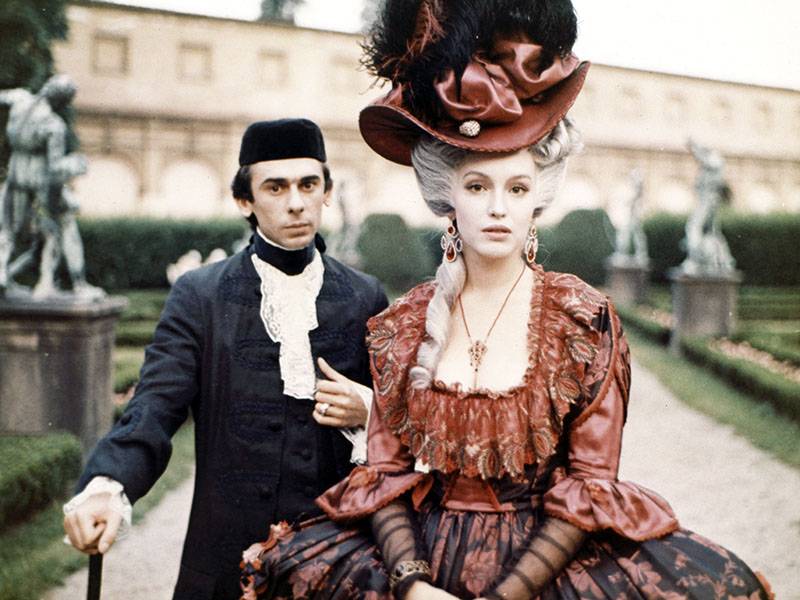
All this carefully prepared “game” was confused by the death of Pope Clement XIV, after which the cardinal was not up to the False Elizabeth. She was desperate and was already thinking about giving up the fight. And then suddenly Alexey Orlov responded, who received the order of Catherine "to capture the name riveted on itself at all costs." This was a chance of a triumphant return to Russia, and Orlov was not going to miss it.
About the denouement of this story, about "Princess Augustus", another pretender to the role of the daughter of Elizabeth Petrovna and Alexei Razumovsky, and some other hypothetical children of this couple will be discussed in the next article.
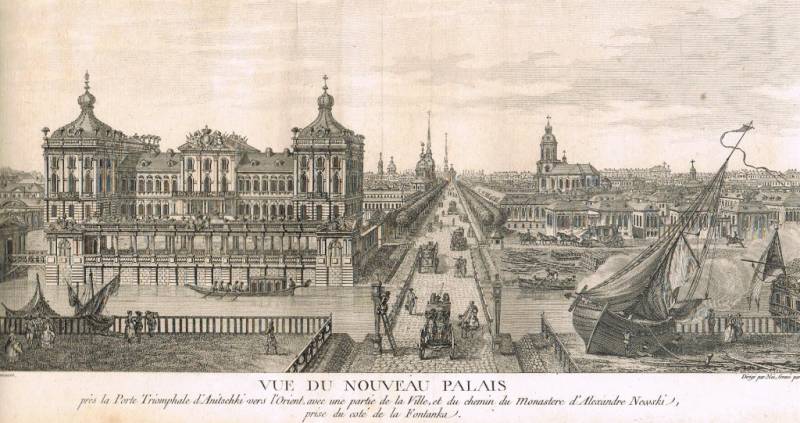
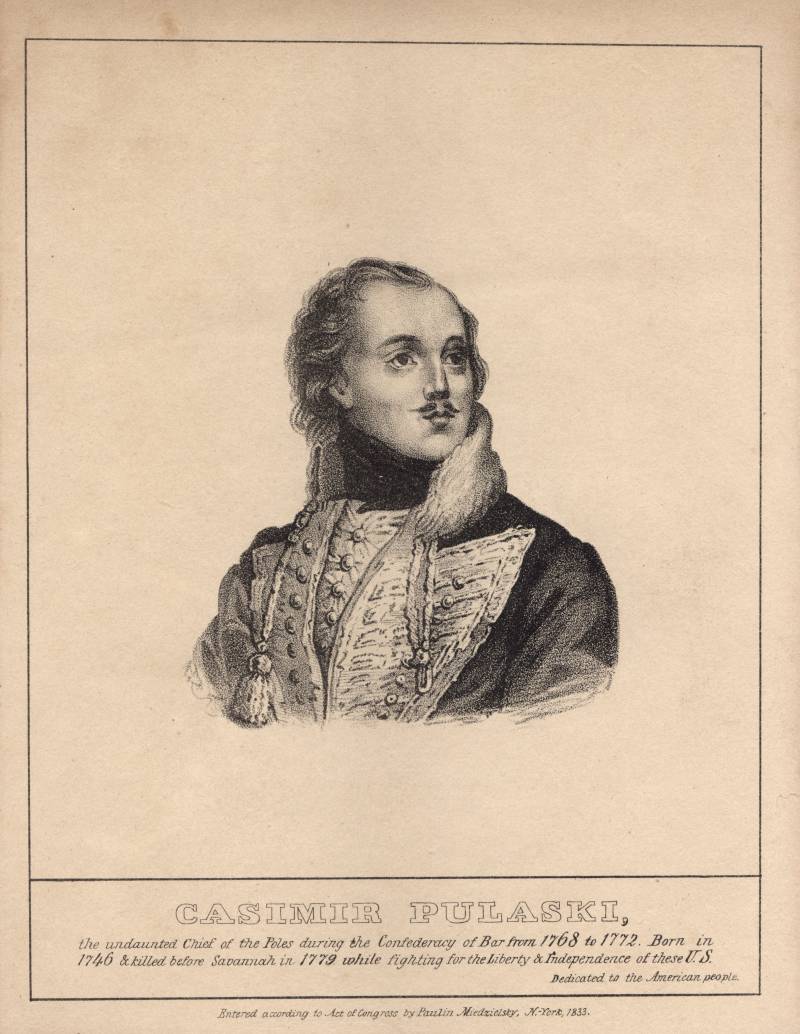
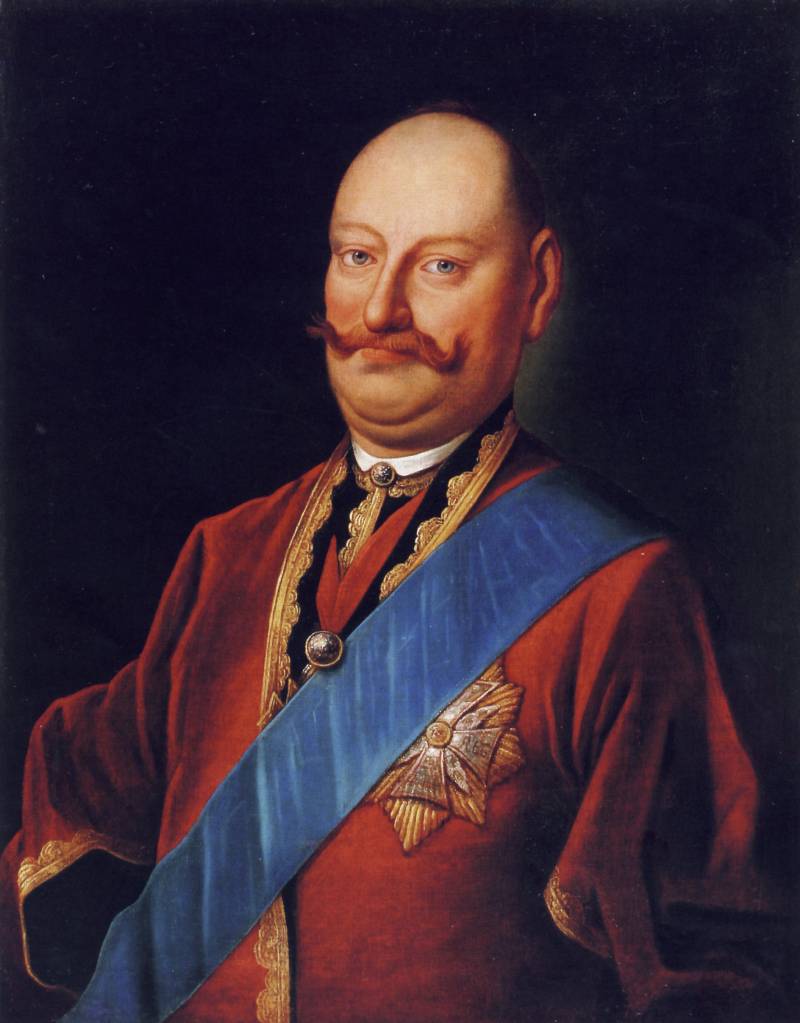


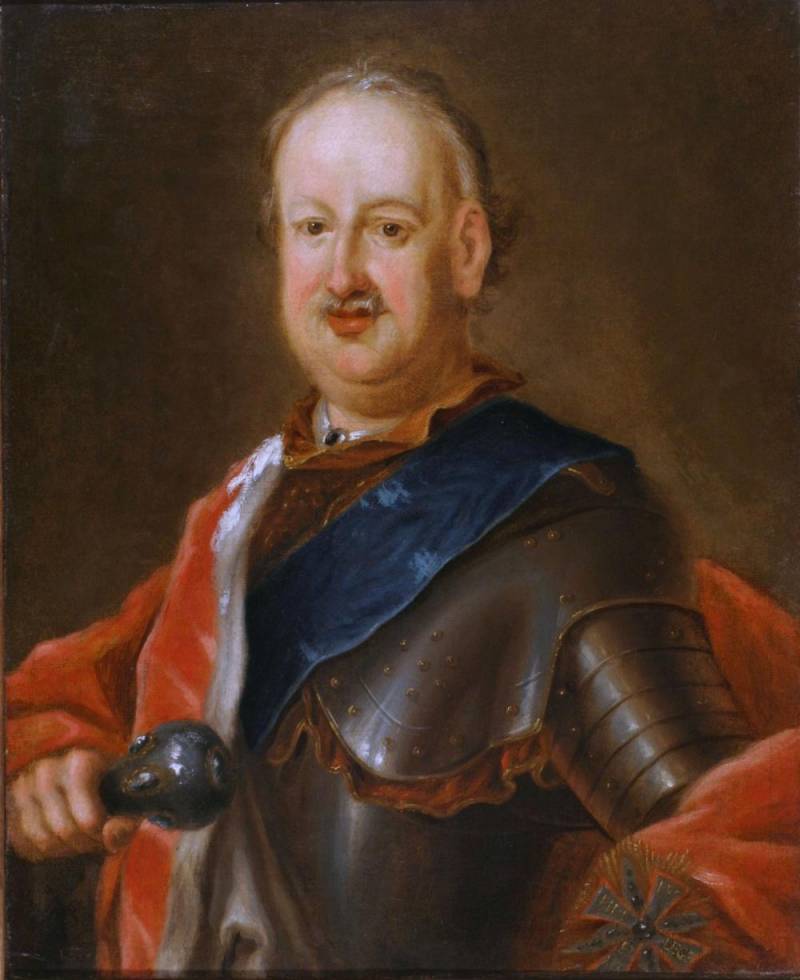
Information